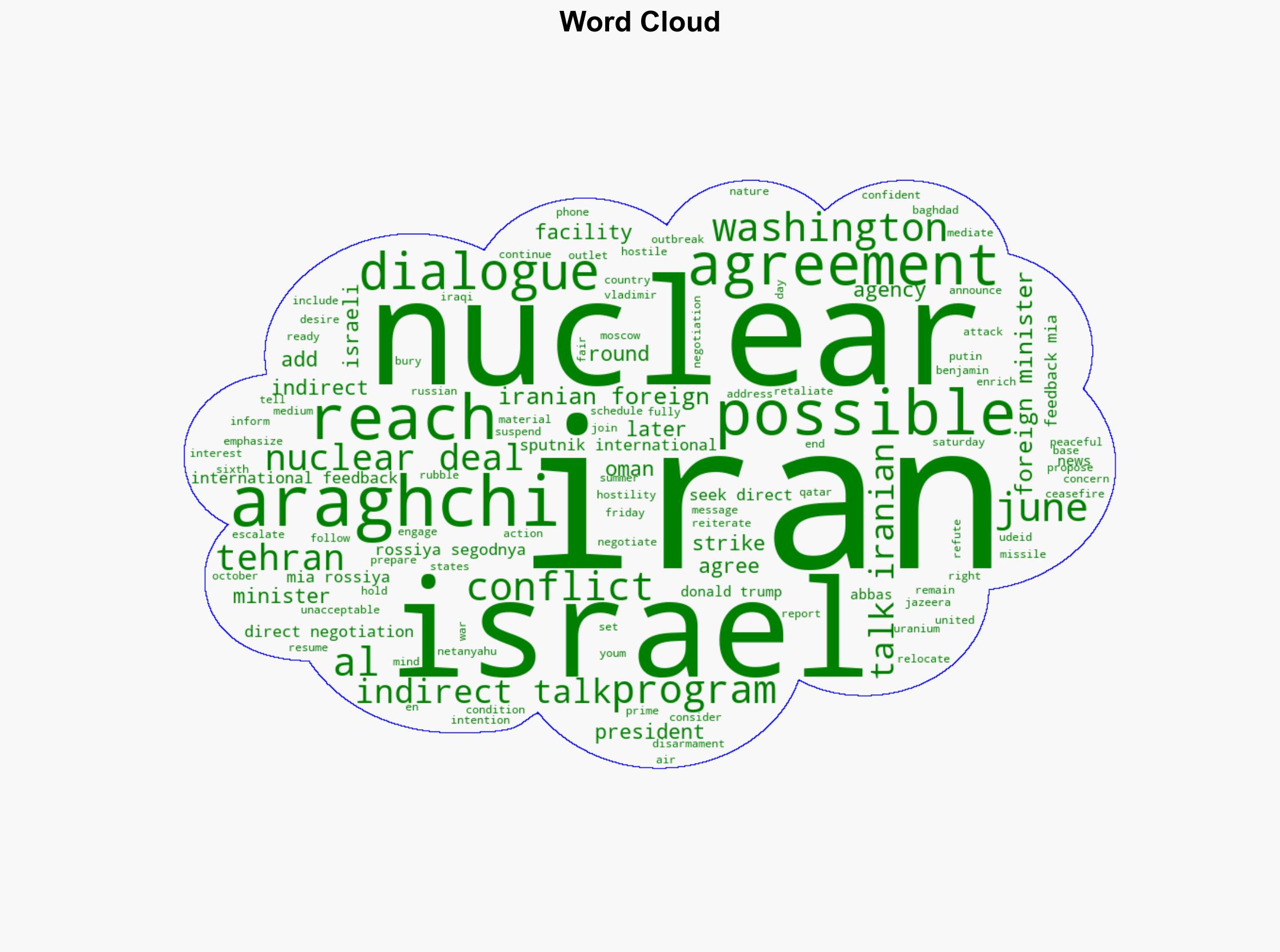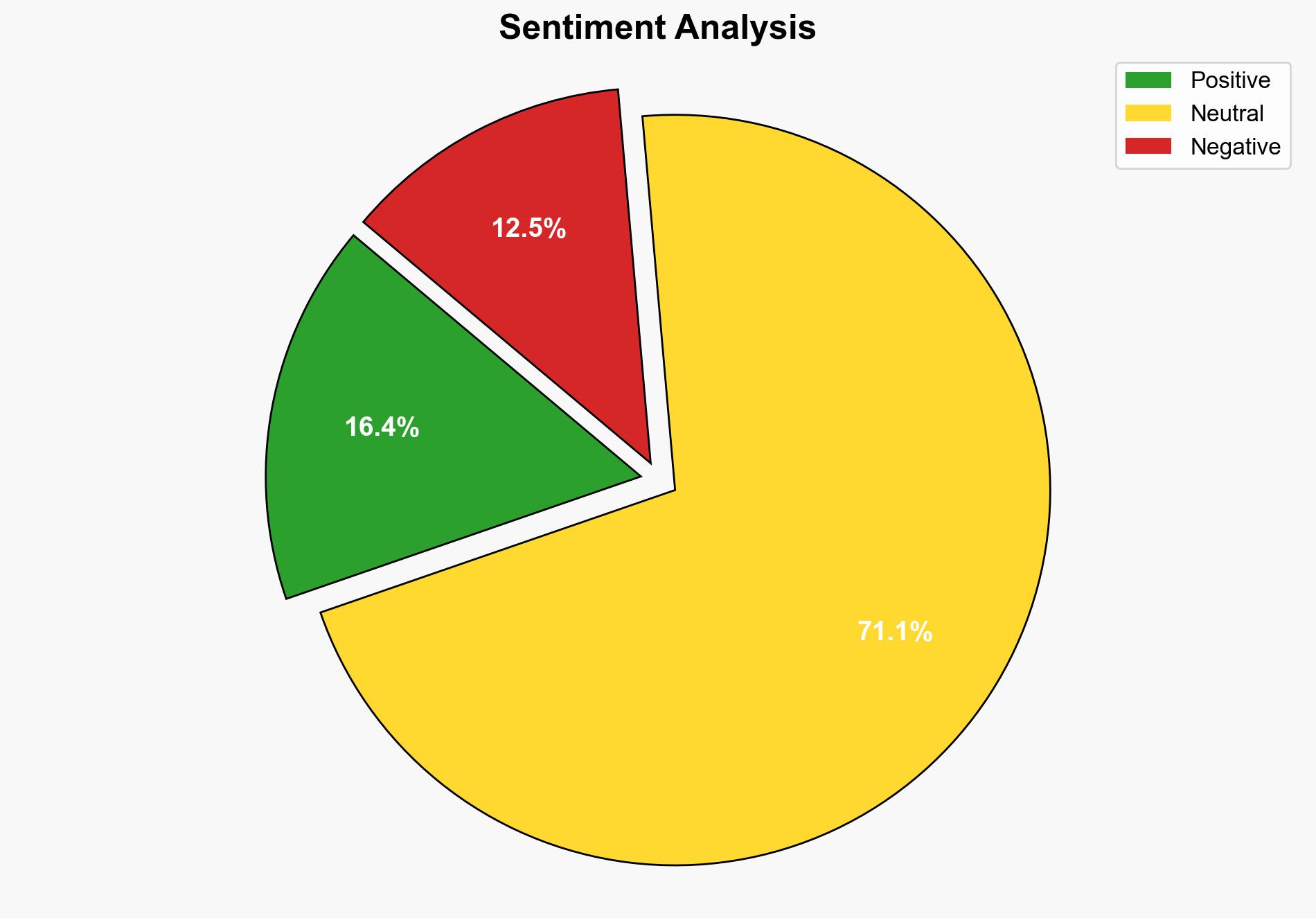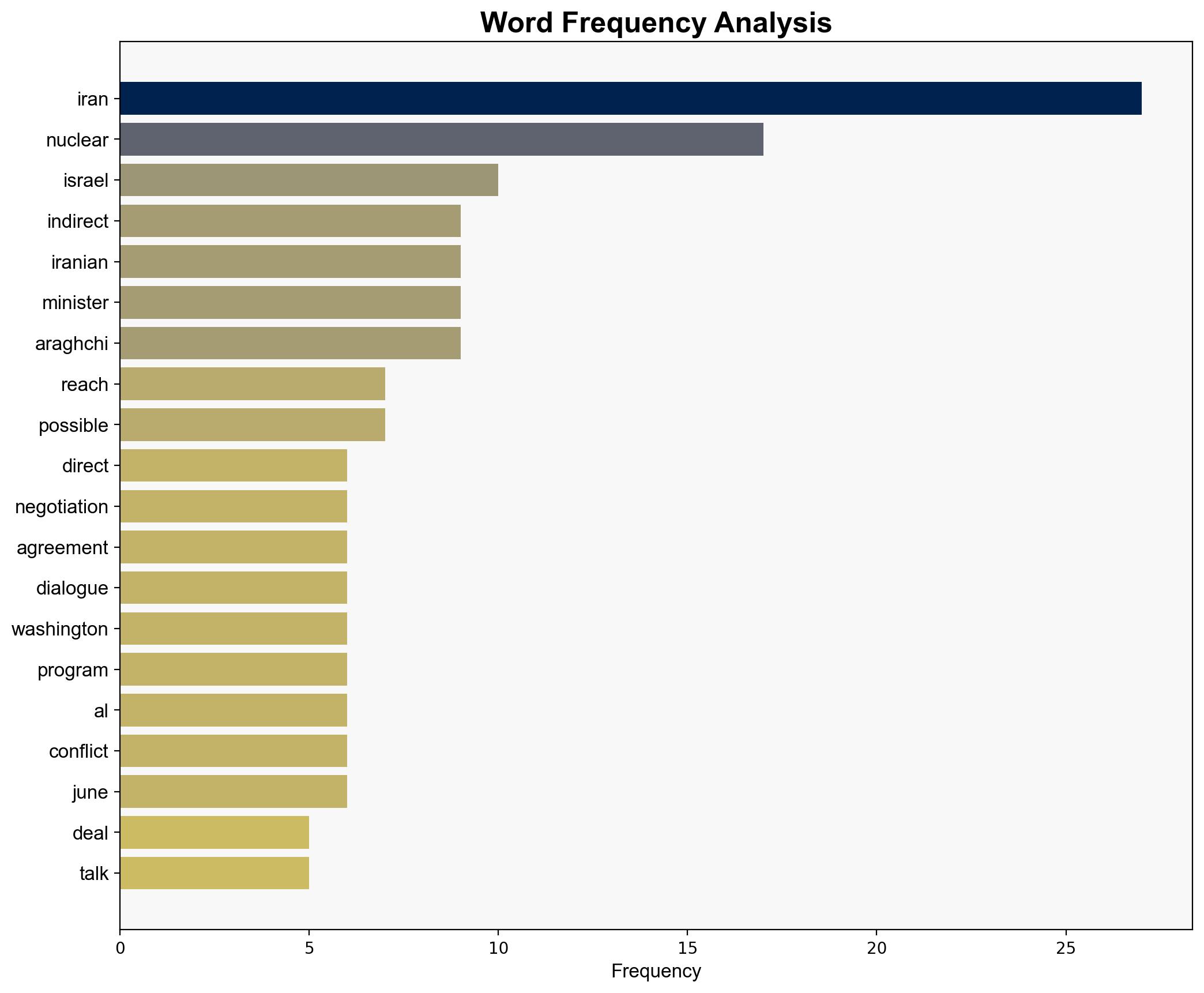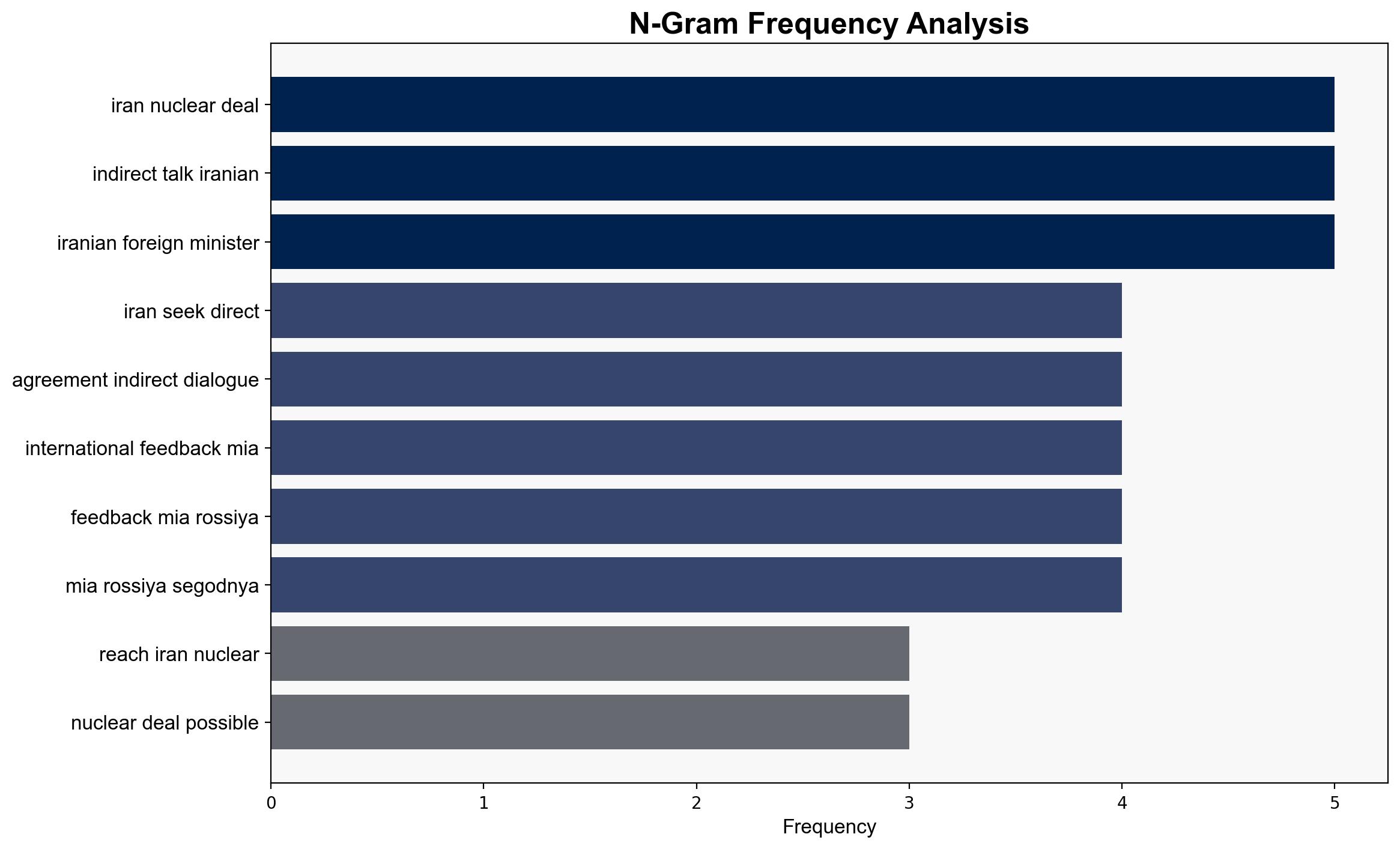Reaching Iran-US Nuclear Deal Possible Through Indirect Talks Iranian Foreign Minister – Sputnikglobe.com
Published on: 2025-11-01
Intelligence Report: Reaching Iran-US Nuclear Deal Possible Through Indirect Talks Iranian Foreign Minister – Sputnikglobe.com
1. BLUF (Bottom Line Up Front)
The most supported hypothesis is that Iran is genuinely open to reaching a nuclear deal with the United States through indirect talks, primarily due to strategic necessity and international pressure. The confidence level in this judgment is moderate, given the complexities and historical tensions involved. It is recommended to engage in multilateral diplomatic efforts to facilitate these indirect negotiations while preparing for potential regional escalations.
2. Competing Hypotheses
1. **Hypothesis A**: Iran is sincerely pursuing a nuclear agreement with the United States through indirect talks as a strategic move to alleviate economic sanctions and international isolation.
2. **Hypothesis B**: Iran’s indication of willingness to engage in indirect talks is a strategic deception aimed at buying time to advance its nuclear capabilities while projecting a cooperative image internationally.
Using the Analysis of Competing Hypotheses (ACH) 2.0, Hypothesis A is better supported by the evidence, such as Iran’s expressed readiness to negotiate and the geopolitical context involving pressures from multiple fronts, including economic sanctions and regional tensions.
3. Key Assumptions and Red Flags
– **Assumptions**: It is assumed that Iran’s economic situation is a significant motivator for seeking a deal. Another assumption is that indirect talks are a viable pathway to a substantive agreement.
– **Red Flags**: The potential for Iran to continue uranium enrichment despite negotiations and the possibility of hidden agendas in their diplomatic overtures.
– **Blind Spots**: Limited visibility into Iran’s internal decision-making processes and the influence of hardliners within its political structure.
4. Implications and Strategic Risks
– **Geopolitical Risks**: Failure to reach an agreement could escalate tensions in the Middle East, involving key players like Israel and potentially drawing in global powers.
– **Economic Implications**: Continued sanctions could further destabilize Iran’s economy, leading to internal unrest.
– **Cybersecurity Threats**: Increased cyber activities from state and non-state actors as a form of asymmetric warfare.
– **Psychological Dimensions**: The narrative of negotiations could impact domestic and international perceptions, influencing public opinion and policy decisions.
5. Recommendations and Outlook
- Engage in multilateral diplomacy involving key regional and global stakeholders to support indirect talks.
- Enhance intelligence-gathering efforts to monitor Iran’s nuclear activities and verify compliance with any potential agreements.
- Prepare contingency plans for potential escalation scenarios, including military and cyber responses.
- Scenario Projections:
- Best Case: Successful agreement leading to reduced tensions and economic recovery for Iran.
- Worst Case: Breakdown of talks resulting in military conflict and regional instability.
- Most Likely: Prolonged negotiations with intermittent progress and setbacks.
6. Key Individuals and Entities
– Abbas Araghchi
– Vladimir Putin
– Benjamin Netanyahu
– Donald Trump
7. Thematic Tags
national security threats, cybersecurity, counter-terrorism, regional focus




